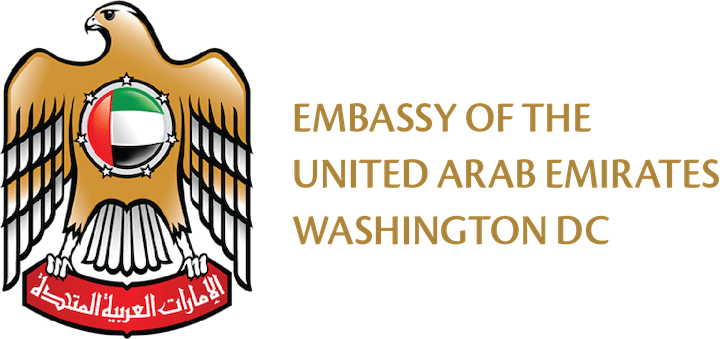US military leaders and national security officials, including former Secretary of Defense Gen. James Mattis, former Commander of US Central Command Gen. Joseph Votel, former Chairman of the Joint Chiefs of Staff Gen. Martin Dempsey, and former Acting Director of the CIA Michael Morell have attested to the reliability and strength of the UAE military as a security partner.
"The US wants to 'make sure we are delivering the equipment [the UAE] needs to defend themselves from the... threat of the Islamic Republic' of Iran."
—Former Secretary of State Mike Pompeo
"The UAE and Israel face the common enemy of Iran. We are going to continue enhancing UAE’s defense posture in a way that preserves our security commitments to Israel."
—Brian Hook, Former US Special Representative for Iran
"Ultimately, under the right circumstances, both the US and Israel would benefit greatly from having a strong ally situated across the Strait of Hormuz from Iran."
—David Friedman, Former US Ambassador to Israel
"With respect to the F-35 or any military hardware or infrastructure, I keep reminding people that it is important to know that the UAE and US’s military and security relationship is robust and has been there for decades. Since the Gulf War, the United States had sold military aircraft and hardware, F-16s, and others to the UAE.
This is not a new relationship; this is a sophisticated relationship that we have had for decades.”
“There’s various discussions about the hardware elements, and aircraft, and other things that are on the table."
—Morgan Ortagus, Former Spokesperson, US Department of State
"Given Israel’s support for Emirati acquisition of the F-35, US approval of that purchase is both advisable and timely."
—General (US Army, Ret.) David Petraeus
"I have no problem with an F-35 sale. The UAE are allies and punch above their weight. They also face real threats."
—Michael Rubin, Resident Scholar, American Enterprise Institute
"…the threat posed by Iran to the Gulf, Israel, and indeed the entire region continues to grow. The F-35 is not a bargaining chip. However, it is a decisive military capability which, when operated by the US and its allies and friends, can create a regional and even global deterrent capability."
—Dan Gouré, Vice President, Lexington Institute
"The F-35 would significantly enhance the UAE Air Force’s capabilities and survivability on this front. Its stealth design features would allow Emirati pilots to penetrate Iranian defenses in response to hostile actions and execute precision strikes against threatening Iranian and proxy targets throughout the Persian Gulf region. This capability may therefore increase the UAE’s deterrence against Iranian military activity."
—Lt. Col. Christine McVann, Military Fellow, Washington Institute for Near East Policy
"While it is too early to call Israel’s ties with the Arabs ‘alliances,’ such relations could arise. In any case, they are all US allies. Strengthening these links benefits America."
—Ambassador John Bolton, Former Assistant to the President for National Security Affairs
"The UAE is aligned with our interests in confronting & containing Iran. The F-35 is made in America so the sale would also support good-paying US jobs. For the sake of American security and stability in the Middle East, the US should approve the sale as soon as possible."
—Ambassador Nikki Haley, Former US Ambassador to the United Nations
AIPAC “does not oppose the proposed arms sale to the UAE, given the peace agreement reached between Israel and the UAE as well as the agreement reached between the U.S. and Israel to ensure Israel’s Qualitative Military Edge (QME) will not be adversely impacted by the sale.
—Marshall Wittmann, Spokesman, American Israel Public Affairs Committee
"The UAE has proven to be a reliable US security partner in six joint coalitions, with personnel operating aside US war fighters in harm’s way. Their skill and impact in joint operations is routinely praised by US counterparts.
We will likely partner with the Gulf countries in any future regional military operations. UAE’s skill with advanced technology will assist burden sharing, especially as we shift resources to meet Pacific challenges.
Israel does not oppose this sale & is itself seeking to build a new security relationship with the UAE. It is difficult to say that we understand Israel’s security needs better than the Israeli government.
Although we should all hope that any Iran negotiations succeed in the coming year, there little reason to believe Iran will be less aggressive in the region. The UAE has a reasonable need for a deterrent against Iranian missiles, mines, submarines, and terrorism."
"Since the US is…maintaining Israel’s qualitative military edge, Israel will not oppose the sale of these systems to the UAE."
—Joint Statement from Israeli Prime Minister Benjamin Netanyahu and Defense Minister Benny Gantz
"We do not believe that this arms package will violate the US commitment to maintain Israel’s Qualitative Military Edge, which is one of the most sacrosanct commitments that the United States makes to Israel. So, we’re very comfortable with this moving forward."
—Ron Dermer, Former Ambassador of Israel to the United States
"…we share, with the US on the one hand, and with all Gulf countries on the other hand, with Saudi Arabia included, the common threat of Iran."
—Shabtai Shavit, Former Mossad Director
"…the question of whether to accept or clamor against what is likely to be a long period of negotiations on the F-35 should be reexamined by Israelis, especially as a stronger UAE would strengthen both countries regarding Iran. Aside from its role in the peace deal, Israelis should consider the benefits to a stronger UAE military along with its drawbacks."
—Major (res.) Danny Citrinowicz, Israel Defense Intelligence
"Ultimately, it must be remembered that Israel and the United Arab Emirates have a common supreme interest: a fight against Iran's subversion and the development of its [nuclear capabilities.]"
—Omar Dostri, National Security Analyst, Jerusalem Institute for Strategy and Security
